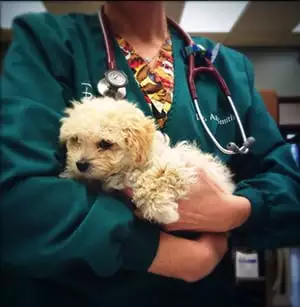Pet Emergency Symptoms
Pet Emergency Symptoms & Instructions
If your pet is showing signs of a medical emergency, don’t wait—call Emergency Veterinary Services of Lisle at (630) 960-2900. We’re open overnight, weekends, and holidays to provide urgent care for pets in Lisle, Naperville, Downers Grove, and nearby communities. Our experienced team can help assess the situation over the phone and prepare for your arrival.
Animals are often very good at hiding when something is wrong. If you are at all concerned that your pet is experiencing an emergency, call us right away. We’ll help determine if they need to be seen and get ready to receive you. If needed, have a friend or family member assist you in making the call or transporting your pet.
Signs of a Pet Emergency
If your pet is experiencing any of the following symptoms, seek veterinary attention immediately:
- Persistent vomiting or diarrhea
- Lethargy
- Pale gums, tongue or skin
- Persistent coughing or sneezing
- Bleeding
- Prolonged labor
- Seizure
- Straining to urinate or defecate
- Blood in urine, stool or vomit
- Rapid or labored breathing
- Lack of appetite
- Sudden, severe limping or pain
- Difficulty standing or collapsing
- Acute injury/trauma
- Rapid weight loss
- Ingestion of inappropriate medications
- Ingestion of indigestible objects
- Ingestion of rodent poison, chocolate, antifreeze, or any other toxin
- Any other sudden change in your pet that is abnormal
When Your Pet Ingests a Toxin
Many foods harmless to humans are toxic to pets. Additionally, only small amounts of some household substances can prove harmful to cats and dogs. Call us if you ever suspect your pet has consumed something they shouldn’t have. We can let you know whether you need to worry about what your pet ingested. Sometimes we may need you to contact the ASPCA Animal Poison Control Hotline to assist.
Some of the more common toxins that are the most dangerous to pets include the following:
- Chocolate is toxic to both cats and dogs.
- Xylitol, an artificial sweetener commonly found in gum, is toxic to cats and dogs.
- Onions, garlic and chives are especially toxic to cats but pose a threat to dogs as well.
- Caffeine contains the same ingredient that makes chocolate toxic.
- Grapes, raisins and prunes are specifically toxic to dogs.
- Macadamia nuts can be toxic to dogs as well.
- Rodent/Mouse poison of any kind.
- Antifreeze is highly toxic to dogs and cats.
- Lilies are very dangerous for cats.
What to Do if Your Pet is Injured
- Call us immediately at (630) 960-2900 for specific instructions related to your pet's injury.
- If available, use a muzzle to protect yourself from getting bitten.
- Wearing thick gloves and long sleeves or using a thick towel may also help protect you.
- If your pet cannot walk, use a crate, blanket, or board to keep them still during transport.
- If your pet can walk but is weak, provide support under the chest or hindquarters using a large towel as a sling.
- Cover bleeding with an absorbent material such as gauze, clean cloths, or paper towels and apply firm pressure.
See What Makes Us Different

Quality Compassionate Care
Welcoming Critical and Non Critical Cases
We are able to handle the most serious emergencies but we also welcome less serious concerns. We understand that when your pet is not feeling well you want to provide treatment and relief as soon as possible.
Real Stories from Real Owners
Hours & Location
- Hours
Weeknights
M – F : 6:00pm – 8:00am
Weekends
Saturday: Noon – 8:00am Monday
Sunday: Open 24 hours
Holidays: Open 24 hours
- Location
- Phone
